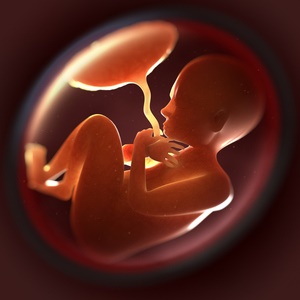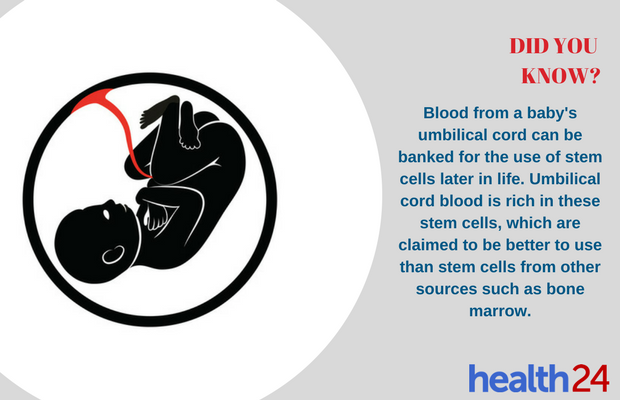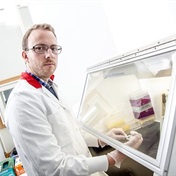
Instead of discarding the umbilical cord after birth, new research suggests the stem cells it contains could potentially be used to improve the lives of people with heart failure.
Stem cell research is being done on an ongoing basis to ascertain which medical conditions could benefit from stem cell therapy.
With parental permission, doctors harvested stem cells from umbilical cords that were then injected into people with heart failure.
An increase in heart function
People who received those injections were monitored for a year, and were found to have an increase in heart muscle function. Study volunteers also reported positive changes in their day-to-day lives, regaining the ability to do things such as drive a car.
"Their quality of life really improved," said study author Dr Fernando Figueroa. He's a professor and programme director in translational research in cell therapy at the University of the Andes School of Medicine in Chile.
People have reported among other things more energy and improved sexual function after stem cell infusions.
Results need to be interpreted with caution
At least one expert suggested interpreting the study results with caution, however.
Dr Mary Norine Walsh, medical director of the cardiac transplantation programme at St. Vincent Heart Center in Indianapolis, said, "It's very encouraging, but the limitations of this study are that it was done in just a few patients and they were almost all men, and they were not that ill at baseline."
Walsh noted that because the study volunteers weren't very ill, it's not clear how patients would respond if they were sicker. She also pointed out that the study only had short-term data.
"But it is an interesting study because the investigators demonstrated that for those that received stem cells there was an improvement compared to the patients who received the placebo," Walsh said.
A noninvasive procedure
The study included 30 patients, ages 18 to 75, who were receiving medication for heart failure, but were in stable condition.
The patients received one intravenous infusion of stem cells either from an umbilical cord or a placebo.
"The rationale behind our trial was to overcome two main hurdles that are facing stem cells today," said study co-author Maroun Khoury, a professor at the University of the Andes School of Medicine.
"The first is that many stem cell treatments require surgery to inject the cells into the heart muscles. With this, it was a noninvasive procedure where the patient had an injection, was monitored for two hours and then went home," Khoury said.
"The second is the variability. There have been a lot of clinical trials conducted where you are not able to see the outcome because they are using the cells of their donors, and the outcome will vary depending on the donor's cells," he explained.
The study was published on 26 September in the American Heart Association's Circulation Research.

Heart function improved for a year
"We decided to use one source of cells from an umbilical cord donation so the product is not a variable, it's constant, and the only variable is the patient," Khoury said.
The study authors were surprised and encouraged by the results.
Based on previous animal research they expected the stem cells to travel to the lungs.
Patients only had one injection, done in a peripheral vein. As expected, the stem cells traveled to the lungs, yet somehow heart function improved for an entire year, according to the study. Figueroa said the results were "kind of amazing".
No adverse side effects were found as a result of these injections.
Follow-up studies needed
The researchers plan to follow up with the study patients for three years to analyse the long-term outcome after one injection.
If the research continues to prove that umbilical cord stem cells are a viable option, Khoury said that they should be relatively easy to obtain. Most parents of newborns were happy to donate them when they learned they'd be used for a medical treatment, he said.
However, until that time, Walsh, who is also the president of the American College of Cardiology, encouraged heart patients to continue with their treatments.
"We have other therapies that can improve heart function and quality of life," she said.
"It's important for people to know that and take action and see their doctor if they feel ill. For many patients, our usual or standard therapy can be lifesaving," Walsh said.
Stem cell bank in South Africa
Stem cell banks in South Africa, such as Cryo-Save, specifically bank umbilical cord blood that can used for medical purposes. According to Cryo-Save, stem cells from cord blood are "younger" than those in bone marrow and have a significantly greater capacity to multiply and grow (proliferate) and to differentiate into different types of cells. As these stem cells are not yet exposed to outside factors, thus less likely to cause complications.
Cord blood is collected, tested, cryopreserved and used as needed. Unlike in the case of bone marrow, there is no need to take time to locate a possible donor and then determine whether they are still willing and able to donate when needed.
If you need more information, do not hesitate to visit the Cryo-Save website.
Image credit: iStock




 Publications
Publications
 Partners
Partners















